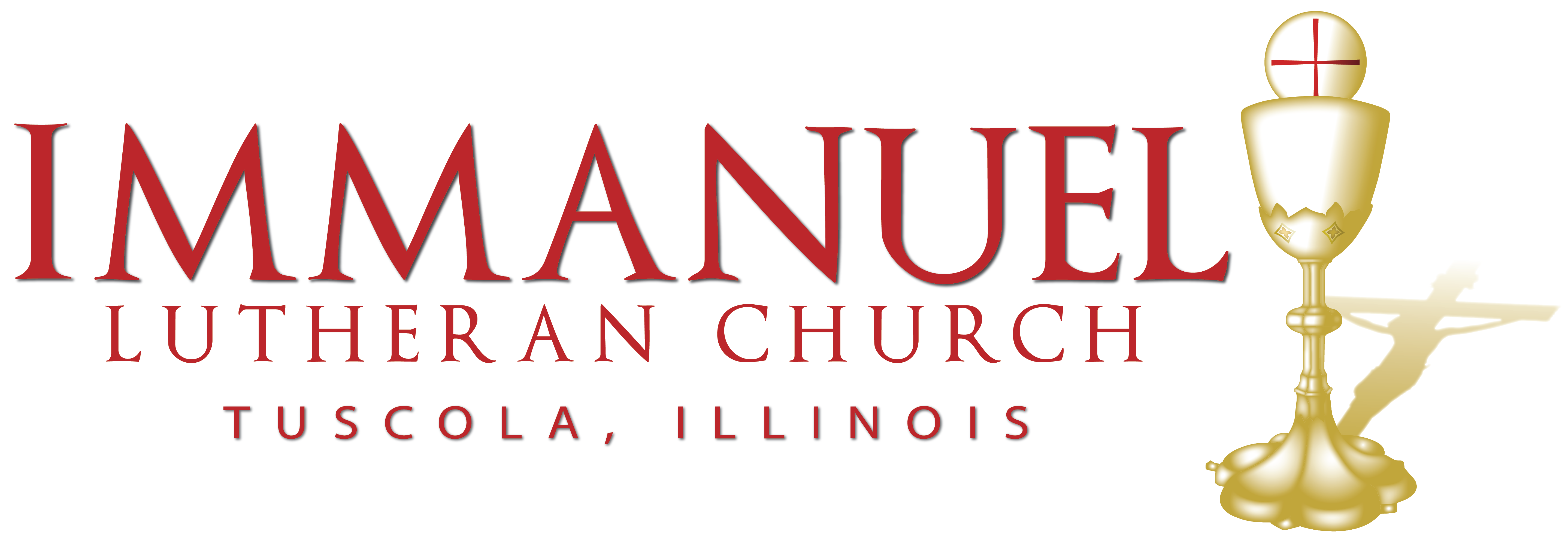Midweek Lent 4
1 Peter 3:8–17
+ IN NOMINE IESU +
Have you ever thought that the world, the church, and life would be great if it weren’t for all the people? I suspect we all have. But then you realize that the world, the church, and life is the people. Now consider the people that Jesus is willing to deal with, folks like us, and you see that compared to Jesus we come up short. For example, take the night before He died. First, Jesus gathered with His own people, with the disciples in the upper room. He gave them his last word and testament, His words of love and service and then gave them His body and blood in the supper. We disciples gather together in church too. So far; so good. Then, that night before He died, Jesus did something else that we also do. He prayed earnestly in the garden of Gethsemane. He didn’t pray about some ethereal, pie-in-the-sky religious themes. He prayed about the here-and-now suffering that His enemies were about to bring on Him. We also take our real-world troubles and trials to our Father in heaven, don’t we? We pour out our troubles that others cause us. So far; so good. But then our Lord did something that we aren’t always willing to do: He went out to meet His enemies. “Rise, let us be going; see, my betrayer is at hand” (Mark 14:42). Now our Lord is leading us, His disciples, out of our comfort zone. We tend to association with people we like, people who think like us, look like us, people like us. We read the news from people who see things the way we see them. But when Jesus’s mission takes Him to the people who will hang Him out to die, we start to back off. But that’s Jesus’s way.
Jesus’s way should be our way. Listen to what St. Peter says in tonight’s sermon text. “Finally, all of you, have unity of mind, sympathy, brotherly love, a tender heart, and a humble mind. Do not repay evil for evil or reviling for reviling, but on the contrary, bless, for to this you were called, that you may obtain a blessing.” Peter himself had to learn to deal with those who wanted nothing to do with Jesus, people who even killed Jesus and would persecute Jesus’ followers. To do good to those who wrong you must have been a difficult message for the Christians to whom Peter wrote. They were slandered and shunned and persecution wasn’t far off. Would they understand what we mean when we say, “Life would be OK if it weren’t for people?” You bet! But we have blessings to give and God promises to bless us for being blessings to others. “Bless, for to this you were called, that you may obtain a blessing.”
What are the blessings we should bestow on others? Listen again to the qualities Peter lists. “Have unity of mind, sympathy, brotherly love, a tender heart, and a humble mind. Do not repay evil for evil or reviling for reviling, but on the contrary, bless, for to this you were called, that you may obtain a blessing.” Then Peter backs up what he says with a quotation from Psalm 34. The quotation starts, “Whoever desires to love life and see good days . . . ” Is there anyone of us that doesn’t want to love life and see good days? Then Psalm 34 lists ways you and I can be blessings to others. Don’t say cruel things or tell lies. Do what is right. Pursue peace. Obey the Lord. Trust that the Lord hears your prayers. Trust that those who do evil do not have the Lord’s favor. There are all sorts of ways in this psalm and from Peter by which we can bless other people. Let me sum them all up this way. Imagine that those people out there, those people who are different than you and sometimes can be difficult . . . imagine that they are saying to you and me, “Don’t tell me what a friend I have in Jesus until I see what a friend I have in you.” If you do good to all people but sometimes don’t “feel the love,” don’t lose heart. God’s promise is still true: When you are zealous to do good, you will inherit a blessing.
So what’s the promised blessing? What awaits us as we actively do good to others? Listen to this quotation from the German Lutheran theologian Dietrich Bonhoeffer.
I remember a conversation that I had in America thirteen years ago with a young French pastor. We were asking ourselves quite simply what we wanted to do with our lives. He said he would like to become a saint (and I think it’s quite likely that he did become one). At the time, I was very impressed, but I disagreed with him, and said, in effect, that I should like to learn to have faith . . . . I discovered later, and I’m still discovering right up to this moment, that it is only by living completely in this world that one learns to have faith. One must completely abandon any attempt to make something of oneself, whether it be a saint, or a converted sinner, or a churchman (a so-called priestly type!), a righteous man or an unrighteous one, a sick man or a healthy one. By this- worldliness I mean living unreservedly in life’s duties, problem, successes and failures, experiences and perplexities. In so doing we throw ourselves completely into the arms of God, taking seriously, not our own sufferings, but those of God in the world – watching with Christ in Gethsemane. That, I think, is faith; that is metanoia (repentance); and that is how one comes a man and a Christian. May God in His mercy lead us through these times; but above all, may He lead us to Himself. (Letters and Papers from Prison, Collier; pp. 369—370)
The blessing that comes from doing good to difficult people in difficult situations is that God is leading us to deeper faith in Himself. What greater blessing can we have than that? Throwing ourselves into the sufferings of this world shows us our utter dependence upon our Savior. When you don’t wall yourself off . . . When you see how hurting and hopelessly so many people live . . . When you realize that you’re very much a part of this fallen humanity, then you’ll cry out, “God be merciful to me a sinner!” (Luke 18:13). Blessing those who are not kind to you is Christ-like. As Bonhoeffer says, “We throw ourselves completely into the arms of God, taking seriously, not our own sufferings, but those of God in the world, watching with Christ in Gethsemane.” Don’t tell me what a friend I have in Jesus until I see what a friend I have in you. Make your life a blessing to others and you will obtain the blessing of deeper faith in God.
Would life really be that great if it weren’t for the people? It’s people, people like us and people different than us, people good and people bad, people sinners and saints, it’s all kinds of people that drive us to God. When you make your life a life of blessing to others, it may happen that someone wants to know why you are the way you are. St. Peter tells us, “In your hearts regard Christ the Lord as holy, always being prepared to make a defense to anyone who asks you for a reason for the hope that is in you; yet do it with gentleness and respect, having a good conscience.” Won’t that be wonderful when someone sees what a friend they have in you and then they give you an opportunity to tell them about what a friend they have in Jesus? Whether that happens or not, you will be blessed. God is calling us home and in the midst of people, sometimes in the messy midst of people, we are following Jesus to inherit a blessing. Amen.



0 Comments